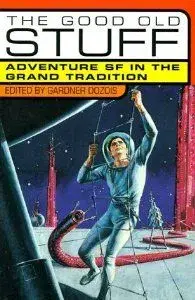April 6, 2013 marks a momentous occasion in scifi history. 2001 will be 45 years old. For me and, no doubt, many others this story was THE ONE. After reading it nothing was ever the same again. I was hooked on the genre.
I thought it might be an idea for all of us who are regular contributors to this thread, and anyone else who cares to join in, to have a reflective moment on the book, the movie and the sequels.
For anyone who has spent the last 45 years at the bottom of a well, here's a bit of background. Stanley Kubrick approached Arthur C Clarke and announced his intention to make "the proverbial good science fiction movie", and wanted Clarke's advice and input.
What happened next changed sci-fi forever. 5 men and a computer set out on a voyage which, although quite local by the standards of Star Trek and the like, was breathtaking in scope. The visual effects still stand up to scrutiny even today, the soundtrack was outstanding and the overall effect was stunning.
Encompassing 4 million years of evolution, from the primitive to the stars leaves one yearning for more, yet simultaneously hoping that the story is complete in itself. The sequels were good reads, and 2010: The Year We Make Contact wasn't too bad at all, but they had to contend with following the original, the best, the story for which no sequel was possible.
Anyone else?

